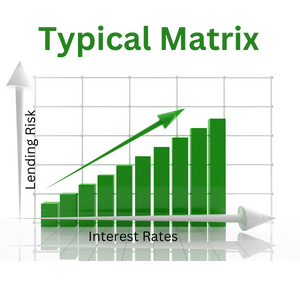Whereas banks and many mortgage advisers (ex-bankers) struggle when situations are outside the norm, non bank brokers help those people that don’t fix the box.
A non-bank brokers is really just a mortgage adviser that has an intermate knowledge of the non-bank rules, and has access to a range of the non-bank lenders too.
As a non-bank I deal with banks and non-bank lenders, and an advantage is that I’ve never worked at a bank and therefore have not been tainted with the typical banking attitudes and methodology.
There are very few true non-bank brokers in New Zealand.
How Applications Are Assessed
We have lots of people that approach a non-bank broker after they have already tried the banks and often other mortgage advisers. They then come to us after all else seems to have failed, and unfortunately because there application has already been presented and declined by lenders then it is hard to go back to those particular lenders.
As mentioned, we deal with banks and non-bank lenders and our aim is to find the most suitable option for you.
We are very particular with how we present our applications (your application) to any lender. Typically this might mean that we ask and double check everything, and we do this to ensure that we have the best chance of success.
We will always consider a range of options, and these include:
Prime Lending – both banks and non-bank lenders offer what we refer to as “Prime Lending” and that is the best that you can get. Most people think that only banks offer prime lending; however some of the non-bank lenders offer options that are just as competitive and sometimes more competitive than what the banks offer. The policies that non-banks operate are sometimes easier than the banks policies and they can also have special niches that can be useful.
Near Prime Lending – is a little more expensive than the prime lending and this is designed to help in cases where your application would “nearly” be prime but for some reason just falls outside of those policies.
Specialist Lending – there is a range of situations that determine the loan application to be treated as “specialist” and those can vary from being unable to prove adequate income, being newly self-employed, being a property investor and/or having credit issues from minor to having previously being bankrupted.

Some non-bank lenders scale the cost based on risk and often will use a matrix which determines what you it will cost, and others have a flat pricing structure.
As the risk or perceived risk increases, so does the cost – the interest rates.
One of the areas of risk that all lenders consider is the ability to get their funds back at a forced sale. Therefore they look at the loan to value ratios (LVR) and as the level of borrowing increases as a percentage of the value then the risk of the lender losing money increases.
It’s not been something that many people have considered over recent years as values increased, but with property values under pressure then people are suddenly understanding that you could quite easily end up in negative equity.
Most lenders have been around for a while and understand that property values can decline, and therefore they are more conservative than they once were.
Can Non Bank Brokers Help Everyone?
The answer is yes.
Remember that as a non-bank broker I am also a mortgage adviser that works with the banks, and that gives me the best of both worlds – the ability to be a “standard” adviser that deals with the banks, and a “specialist” adviser that can deal with the non bank lenders.
If you read this blog you will see some of the types of deals that we get approved, and there are plenty of other approvals and types of deals too. Almost every application will have a unique factor and we need to understand these so we get a positive result when we speak with the lenders.
We ask that you tell us your story and we will see what the best options are.

